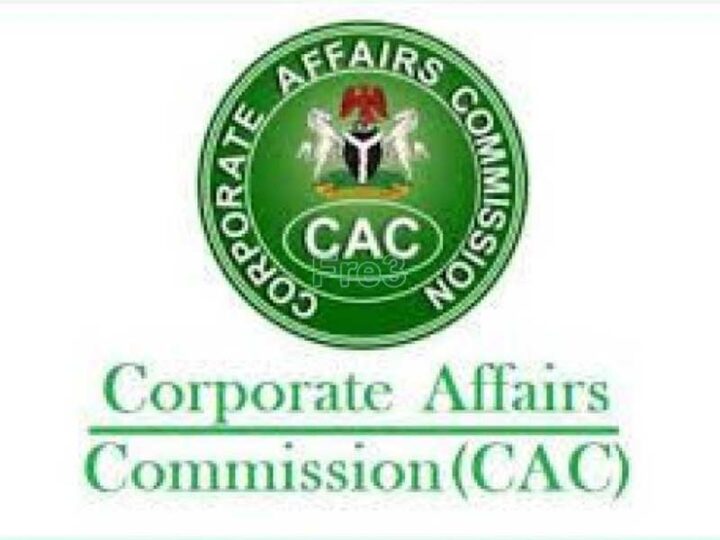The Corporate Affairs Commission (CAC) in collaboration with the Small and Medium Enterprises Development Agency of Nigeria (SMEDAN) has announced the launch of a nationwide initiative to provide free business registration for 250,000 micro, small, and medium enterprises (MSMEs). The initiative, which was unveiled this week, is part of the federal government’s broader strategy to formalize the informal sector, boost entrepreneurship, and promote economic growth.
According to CAC Registrar-General, the free registration drive will enable thousands of small businesses operating without formal documentation to become officially recognized. This will give them access to critical benefits such as business bank accounts, government intervention funds, tax incentives, and legal protections under Nigeria’s corporate laws.

The program, developed in partnership with SMEDAN, is designed to remove one of the biggest barriers to formalization — the cost of business registration. For many small entrepreneurs in Nigeria’s informal economy, registration fees and bureaucratic processes have long been seen as stumbling blocks. By absorbing these costs and simplifying the process, the agencies hope to encourage more entrepreneurs to take advantage of formal registration.
Speaking during the unveiling, SMEDAN’s Director-General emphasized that the initiative is targeted at businesses across key sectors including agriculture, trade, fashion, ICT, manufacturing, and services. He noted that by formalizing MSMEs, Nigeria would not only strengthen its tax base but also improve access to data that will guide policy formulation and attract both domestic and foreign investments.
The agencies stressed that the program will prioritize youth- and women-led enterprises, given their significant contributions to innovation and job creation. The registration process will be handled digitally through the CAC’s online platform, allowing entrepreneurs from across the country to register without traveling to physical offices.
Analysts describe the initiative as timely, especially given the current economic climate where small businesses face challenges such as high inflation, unstable exchange rates, and limited access to credit. By removing registration fees, the government is effectively reducing the cost of doing business for MSMEs, which make up over 90% of businesses in Nigeria and account for nearly half of the country’s GDP.
Stakeholders in the private sector, including chambers of commerce and business associations, have welcomed the development. They argue that formalization of small businesses will enhance transparency, strengthen supply chains, and allow MSMEs to better integrate into the formal economy. In addition, registered businesses stand a higher chance of securing contracts with larger companies and participating in government procurement opportunities.
The program is also aligned with Nigeria’s push to improve its Ease of Doing Business ranking and attract more investors. Over the years, Nigeria has implemented various reforms to reduce bottlenecks in starting and running businesses, and the free registration scheme is viewed as another step toward making the business environment more inclusive.
The CAC highlighted that the target of 250,000 free registrations is only the first phase of the initiative. Plans are underway to expand the program if successful, with a focus on ensuring that more small businesses in rural and underserved areas are included. SMEDAN is expected to work closely with state governments, trade associations, and business clusters to ensure that information about the program reaches as many entrepreneurs as possible.
Critics, however, have raised concerns about sustainability. Some question whether businesses registered under the free program will be able to maintain compliance with CAC filing requirements such as annual returns, which often pose a financial burden. Others caution that without simultaneous reforms in access to finance and infrastructure, registration alone may not be sufficient to unlock the potential of MSMEs.
Nonetheless, experts note that the long-term benefits of formalizing Nigeria’s informal economy cannot be overstated. With millions of small businesses currently operating outside the legal and financial system, the government loses significant revenue while entrepreneurs miss out on opportunities for growth. By bringing these businesses into the formal economy, Nigeria stands to expand its tax net, enhance productivity, and stimulate job creation.
The initiative also comes at a time when the federal government is working to deepen financial inclusion. With more MSMEs formally registered, banks and other financial institutions will have greater confidence in extending loans, grants, and credit facilities to entrepreneurs. This could help address the longstanding challenge of limited access to finance, which surveys show remains the number one obstacle to MSME growth in Nigeria.
Looking ahead, CAC and SMEDAN have pledged to monitor and evaluate the program closely, ensuring that the benefits of registration extend beyond certificates. Both agencies are exploring partnerships with development finance institutions, donor organizations, and the private sector to link registered businesses to mentorship, capacity building, and funding opportunities.
For many entrepreneurs, the free registration initiative represents a new chapter in their journey toward growth and sustainability. It underscores the recognition of small businesses as the backbone of Nigeria’s economy and highlights the government’s commitment to supporting their development.
As the rollout begins, business owners are encouraged to take advantage of the opportunity, while stakeholders hope that this initiative will set the stage for stronger, more resilient MSMEs capable of driving Nigeria’s long-term economic transformation.
Word Count: 756
Support InfoStride News' Credible Journalism: Only credible journalism can guarantee a fair, accountable and transparent society, including democracy and government. It involves a lot of efforts and money. We need your support. Click here to Donate
